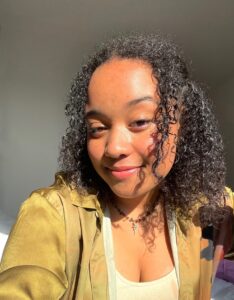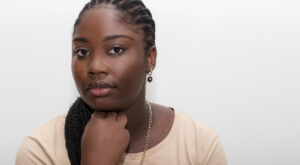Iola Nkan and Naomi Adesiyan, two of the co-producers on Young Changemakers share the work they've done so far, their hopes for the programme and why schools and young people should be paying attention

Two of The Diana Award's Young Changemakers talk youth social action, anti-racism and tackling bullying

The Diana Award’s Spirit-funded project Young Changemakers supports young people from racialised communities to channel their lived experiences into tackling racial injustices in mental health services in the UK through youth social action projects. The programme is led by a team of co-producers aged 16 – 25 to ensure that every element of the programme is designed by young people for young people.
Spirit of 2012 awarded The Diana Award with funding to build on Phase 5 of the Young Changemakers, to develop and deliver Anti-Racist Bullying Training to secondary schools. Schools will attend a free online, half-day training session delivered by one of their anti-bullying trainers. After the session, The Diana Award offer students and educators 12 months of tailored support to develop exciting campaigns that will create real impact in schools, communities and beyond. Schools will have the opportunity to earn the Respect Badge by running campaigns and initiatives to tackle racist bullying behaviour in school.
As we reach the midway point of the first term in the new academic year, we asked two of Young Changemakers co-producers to share their hopes for the programme and why they think its important for schools to sign up.
Iola Nkau – Co-Producer

Iola is an A-Level student aspiring to go into the field of healthcare. Iola’s interests focus on health inequalities and how they can be combatted. Alongside her studies, Iola carries out ambassador work for Newcastle Carers Centre, advocating for other young carers, like herself. You can read more about her role as a young carer here.
“Over the past few months, I have been involved in co-designing the Young Changemakers Programme with Spirit as a co-producer on the Young Changemakers programme with the Diana Award, UK Youth and Centre for Mental Health. During sessions we discussed the meaning of racist bullying behaviour and explored various topics that we wanted to be included in the training. These ranged from: the impact of micro-aggressions on someone’s day to day life to what we believe genuine allyship looks like from people from non-racialised communities. Once we decided on a list of suitable topics, we brainstormed ideas of social action projects that could stem from the planned activities, to check the suitability of the programme.
What excited me about this opportunity in particular was the chance to take my negative experiences from school and help to create a programme that aims to educate students on the impacts of such behaviours so hopefully others don’t have the same experience. I think it is also crucial to have co-producers on a project such as this to ensure people aren’t assuming the key issues and then creating resources that don’t actually tackle the problems or potentially dilute the subject matter and therefore peoples’ lives experiences.
“Ideally after this programme has been carried out, I would like to see a change in the schools that have undertaken the Respect Badge. Hopefully advice is taken on board and the new insight helps prompt productive conversations sparking positive change. When students undertake their projects, it would be great to see senior leadership teams engaging with the students and assessing how their school can change to benefit students from racialised communities. It is one thing to say you aren’t a racist institution, but it is another to be actively anti-racist and endure your policies are inclusive and reflect anti-racist values.
“I think schools should sign up to the Young Changemakers Programme because it provides students with the chance to explore their own biases and think critically about any systems they may be upholding unconsciously, in a structured environment. It also will get people thinking how they can be proactive in their communities and recognise and challenge any racist bullying behaviour effectively. I think this programme will benefit anyone from any background, even people from racialised communities as they can gain insight into what people from other backgrounds to themselves experience in terms of racist bullying and harassment.”
Naomi Adesiyan – Co-Producer

Naomi recently graduated in Psychology from the University of East Anglia and is passionate about mental health but specifically mental health awareness concerning stigma in the BAME communities. Alongside her studies, she runs her own psychology-based Instagram blog account that documents her journey in the psychology field. Naomi is also interested in research, especially research about non-western forms of psychotherapy and interventions.
“Throughout the project, the co-producers have been involved. This ranged from us having Zoom meetings discussing ideas on what our definition of racism is to contributing on Jamboard sessions on what topics should be discussed. Young people’s voices have been key in this initiative and ensures that aims set out are readily achieved.
“My hope for this programme is that the anti-racist bullying campaign will make a difference in schools. A real change not only on the young people’s lives in school but also outside in the real world. In addition to that I hope we begin to see systemic changes in the way teacher and student relationships in schools are built.”
Further Information:
